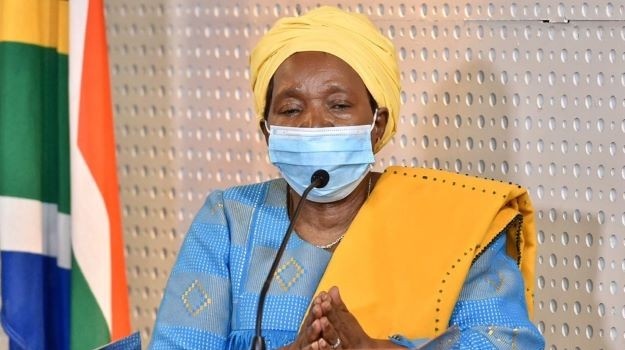Government estimates about 1.5 million people, about 40% of the workforce, will be able to return to work at the end of this month as more companies are allowed to operate, however they need to adhere to specific rules to ensure the risk of transmission of the coronavirus remains low.
Trade and Industry Minister Ebrahim Patel and Minister of Cooperative Governance and Traditional Affairs Dr Nkosazana Dlamini-Zuma on Saturday provided a detailed breakdown on the industries that are allowed to operate during level four of lockdown.
This comes after President Cyril Ramaphosa on Thursday announced that the restrictions on economic activity would be lifted in a gradual risk-adjusted process, based on coronavirus levels. The National Coronavirus Command Council determines the alert level based on evidence of the infection rate and the capacity of the health system to provide care.
South Africa is currently at level 5, in which drastic measures are taken to control the spread of the virus. At this level only essential services may operate. When we move to level 4 on Friday 1 May, more businesses may be allowed to operate, while keeping to specific health and safety precautions. A curfew will also be enforced to restrict the movement of people.
The lockdown is still to be enforced, but more companies will open up for business and more people will get to go to work, Dlamini-Zuma explained.
"We are taking all the measures to make sure the speed of the spread of the infection is not high, so as not to overwhelm health services … If we do not stick to the conditions to the restrictions, we will move swiftly back to level 5," Dlamini-Zuma added. She warned that if companies do not stick to the health and safety rules they will be closed down.
"Industries must stick to the guidelines. If you take short cuts, and try to save money, you will lose more money when that company or factory has to close because people are infected," said Dlamini-Zuma.
Workplaces and even public transport service providers must offer hand sanitisers and everyone must wear a face mask. Workplaces will also have to screen staff for symptoms of the virus. In large companies, testing for the virus may even be possible.
"If we stick to all the things that need to be done, then we may be able to hold onto level 4 and eventually get to level 3 … If the numbers go up, we may go back to level 5," Dlamini-Zuma added.
Each of the sectors were assessed in terms of the risk of transmission, the impact of the extended lockdown on businesses and the livelihoods of people as well as the contribution of the sector to the SA economy. Government also considered the impact of the lockdown on community wellbeing.
Patel said that the new approach calibrates the level of openness in the economy to the level of risk of transmission. If there is a lower risk, the economy may expand and more movement will be possible," he explained.
"It's been a difficult and complex process, and a hard, balancing act," Patel admitted.
He said it was important to strike a balance between getting people to work so they can earn a living, as well as containing the spread of the virus. Patel said while there is a risk of overwhelming the health system by lifting the lockdown restrictions too quickly, but if we move to slowly we risk a prolonged economic downturn.
Government proposes the following industries will reopen under level 4:
- Essential services such as water, energy, ICT, the health sector and food production, some financial services, will continue to operate at level 4.
- In agriculture, forestry and fishing – the whole sector will now operate including logging, forestry, horticulture, animal auctions and transport of livestock while maintaining social distancing rules.
- In manufacturing – there will be a further, partial opening of industries. More than 20% workers will now return to work, said Patel. These include children's clothing and winter clothing as well as blanket manufacturers. Computers, personal office equipment and mobile phones to get more people to work from home. Car manufacturers, and automotive component manufacturers, cement and construction materials, as well as stationery production.
- In retail – apart from supermarkets and informal traders, now retailers selling children's clothes, winter goods such as blankets and heaters, tobacco can operate. As well as those selling stationery and personal office equipment and ICT.
- In mining- more employees in the open cast industry will be allowed to return to work. They will not return all at once but in a phased in process, Patel said.
- Professional services – these are thing like legal services, accounting, engineering as well aas call centres which will come back on stream.
- Recycling as well as informal recycling will be allowed to operate.
- Construction – expanded activities such as civil engineering for public works – water, energy and sanitation projects, will come back on stream.
- Restaurants and take-aways will be able to open, for delivery only. "The delivery means customers do not come to the shop but food goes to the customer," said Patel.
Industry players will be allowed to consult on the proposals made by government, before the final regulations will be gazetted.





















